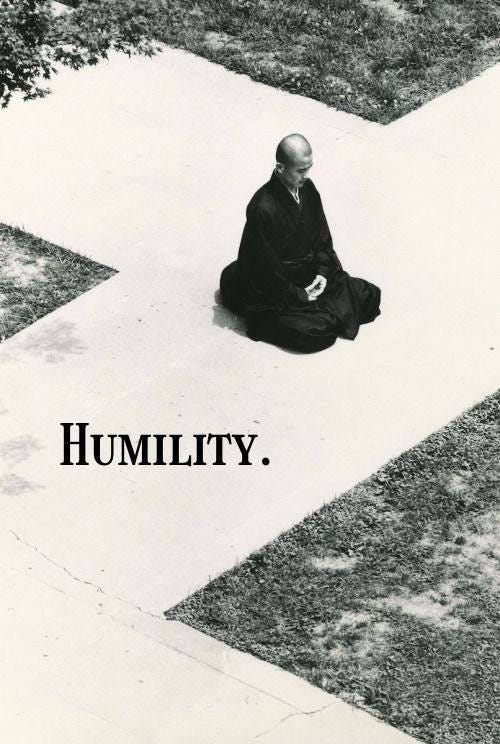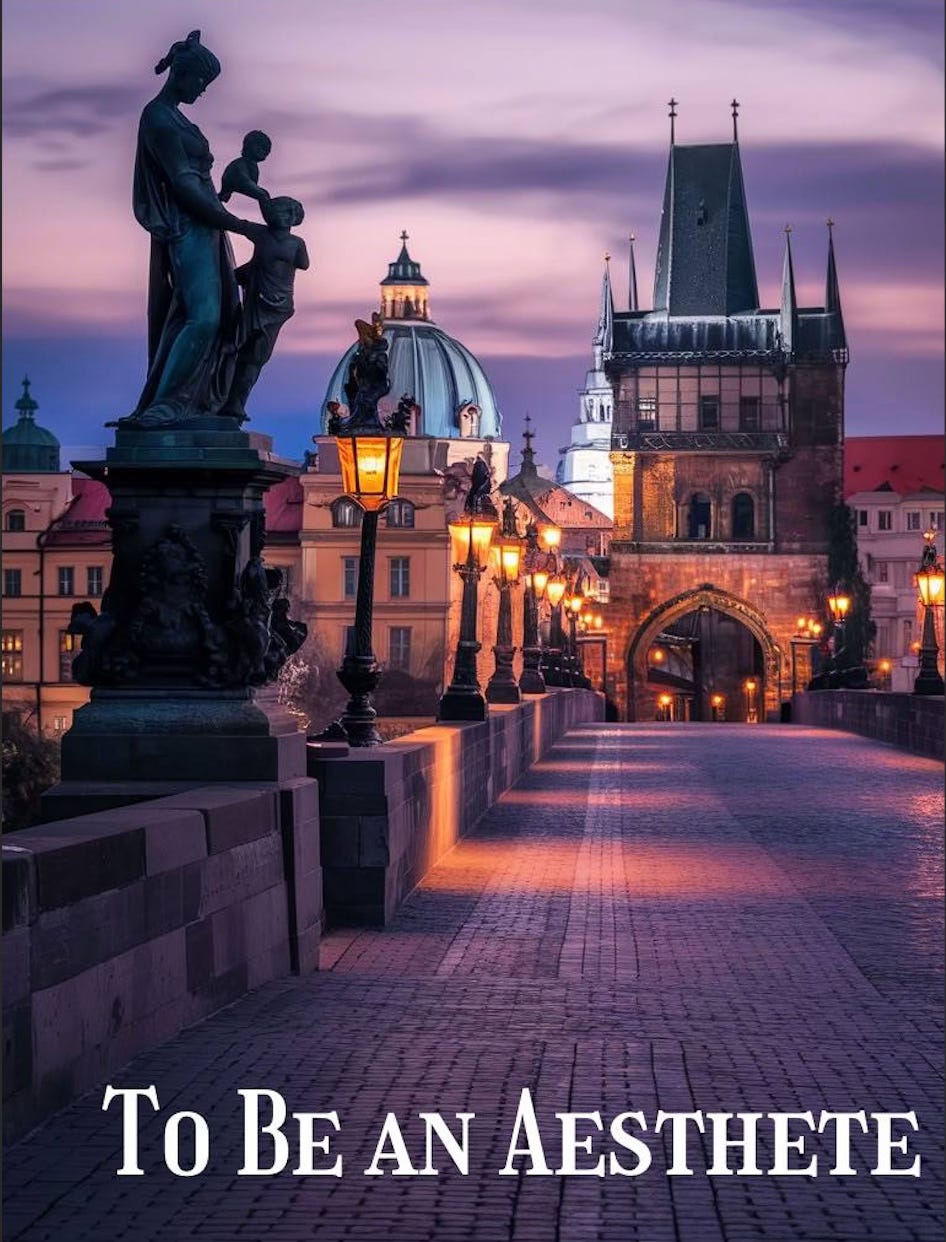This past Lent was a particularly tempestuous one for my wife and I. We were coming attending a church in Phuket, Thailand that was a 1.5 hour commute by moped to the other side of the island. We were only able to attend Liturgy once a week which is uncharacteristic of a Lenten praxis.
To fill the void, I spent time in silence with God more often than usual either after Muay Thai sessions or while riding around on a moped throughout the island to write daily meditations on the many dogmatic and practical aspects of the Orthodox Christian Faith.
These thirty meditations were originally released on instagram, and I’ve decided to take five standout meditations and place them into this article in preparation for the conclusion of Pascha punctuated by Ascension this Thursday.
The reason I chose to do so is a yearly noticeable, creeping lack of focus on the spiritual disciplines in the aftermath of the time of celebration that often leads to a spiritual slump in the return to “normalcy.”
I hope these are of some help.
ON MARTYRDOM:
The context of seeing one’s life purely in the view of this life is to truly send one’s self towards eternal damnation.
The greatest importance is then placed upon worldly things, as one flounders, chasing the highest peaks of vital experience and the euphoria of greatest victories before the fleeting feelings send a man crashing down wanting more in a perpetual state of emptiness.
In many cases, our lives are blessed by God not only in spiritual ways but in material ways when we are obedient to His will.
However, if one hasn’t read the book of Job and/or still knowingly or unknowingly views this world as the the only experience despite professing the Christian Faith, he will view negative experiences in the material as a condemnation from God.
The greatest extreme of this dynamic would be found in perpetually mourning martyrdom in the name of our Faith.
The Saint, Tsar Nicholas II comes most to mind. Saint Nicholas inherited a mess of a Russian Empire that was dragged into World War and Revolution in the aftermath of a struggling Industrial Revolution and total military loss and embarrassment by the hands of the rising Japanese Empire aided by British intelligence.
He and his family were forced to accept their material fate with dignity amidst regicide and the massacre of the majority of the royal family which would be viewed as an irreparable tragedy resulting in the Soviet Union.
However, his family were honored by God through Salvation and canonization in the case of Saint Nicholas. And after decades of Godless rule, Russia has experienced a resurgence in its Orthodox Faith.
Martyrdom is the greatest reward from God not only to one’s soul but to those in the body of the Church who engage in the struggle of Theosis as one, inspired by the martyr’s Holy example.
ON HUMILITY:
You might be surprised to see me posting a picture of a Buddhist monk for a Lenten post, but allow me to explain.
I’ve been living in Thailand for two months now, and I’ve had the privilege of partaking in a society where respect and humility is abundant. This stems from being a Buddhist country, and while Buddhism is not centered around Christ, there is a whole host of virtues practiced in Buddhism very much in alignment with Christianity.
Now, this is not a bid for a kind of Eastern Ecumenism, but I had an even greater privilege meeting a Priest in Chiang Mai who might be the Holiest man I’ve ever met. He had explained to me that his conversion to Orthodoxy felt quite seamless due to so many virtues and practices, even confession being prevalent in Buddhism.
The most remarkable thing to me however, the aspect of him that made me feel as if I was in the company of a hidden Saint was a boundless humility that bled through in every sentence and action that came from him.
Humility is the only quality we can exceed the Devil in, as he has no humility. He is smarter than all of us, stronger, more cunning, etc, but humility is the virtue from which all virtues and spiritual disciplines begin that he is incapable of.
A truly humble person does not mind going unnoticed, and often times, because of this, there are many hidden, non-canonized Saints.
The most recently canonized Saint, Matushka Olga of Alaska could have very well been one of those hidden Saints if not for her canonization.
But what stuck out to me most about Father Paul in Chiang Mai and Matushka Olga as described in the recent film, “Sacred Alaska,” was the fact that they both are/were not partaking in extraordinary adventurous lives like that of Saint Anthony the Great or Saint John Maximovitch.
They simply had/have their lot in life, had/have their duties, and they partook/partake in them with such discipline, love, grace, and humility that they achieved a Holiness that was and is revered by many.
There is the life of a Saint for all of us if we look right in front of us. May we proceed with Humility.
TO BE AN AESTHETE:
Aesthete: a person who has or affects to have a special appreciation of art and beauty.
Arthur Dayne, [May 27, 2025 at 6:30:47 AM (May 27, 2025 at 5:41:37 PM)]:
God loves all things that are beautiful, but I’ve often struggled with this sphere’s emphasis on beauty as an end goal in itself. Far too many times we’ve witnessed the capacity for beautiful aesthetics to be internally corrupted. It is rare for the core to match the outward appearance.
Physiognomy is a worthy tool at times, but we often overlook the signs on one’s face that display whether or not they’re a scoundrel if they possess a certain degree of beauty.
I have also said in the past that if I can’t live in a beautiful place, I’d prefer to live in a harsh place. I prefer to know where I stand at all times.
Living in harsh places has often see me grow apprehensive with ONLY being surrounded by beauty.
It wasn’t until a trip to Prague with one of my closest friends, Jan Radliński that I was able to fully find the balance of being in an Orthodox Christian mindset and being an aesthete mostly due to his example.
As a side note, while I believe Paris to be the most beautiful city on Earth despite its current decay, Prague is a Gothic marvel of a tapestry with influences from all three of Europe’s major ethnic groups in the Latins due to its Catholic history, the Germanics due to its placement in the HRE, and the Slavs due to its placement on Slavic soil. While Paris is indeed the most beautiful, Prague has a male spirit of brooding, intensity, elegance, and ferocity. It is a city I think about daily, and it is most likely my favorite of Europe.
Despite Czechia being the only majority Atheist country, one wouldn’t know it by walking into its storied Orthodox Church of Saint Cyril and Methodius, the fathers of Slavic Orthodoxy. We were packed in like sardines, and there was an intense but elegant strain of Orthodoxy that remains my favorite to this day.
It was in this example and the example of Jan’s interaction with Prague’s unrivaled aesthetics that I was able to finally understand the line between the appreciation for beauty without slipping into lapse decadence that preys on us all.
There is beauty in the struggle towards salvation, and the aesthetics of this dynamic can present themselves both as the struggle itself or the beauty of that struggle.
The internal war is equal parts spiritual and mental. While many have denounced psychotherapy in the Orthodox world, there are a good number of Orthodox psychotherapists who work in tandem with Orthodox Priests who together determine whether an internal issue with an individual is spiritual or mental.
This displays legitimacy to the wars of the mind themselves as having enough of a distinction to be understood as something tangible although not entirely detached from spiritual warfare.
Frances Parker Yockey stated that the internal life of a man is far more important than the external life, as the internal determines the external.
The opposite end of the spectrum is the recent self-improvement culture found in this sphere of social media that declares that action is the only way to lift one’s self out a poor mental state.
But if there’s anything that the past five years has taught me, it’s that these factions presenting mono-directional solutions are almost always part of a bi-directional dynamic.
If one only zeroes in on action, the actions themselves could lead a man down a path he didn’t originally intend to walk. Actions often beget actions, and if we are not aware of internal orientation, we reach a destination that is unfavorable at best and damnation at worst.
If one is to purely focus on one’s internal life, then he’ll find himself with an internal peace that is not reflective of his output and contribution to the world both in material terms and in deeds reflecting one’s Faith.
There is no Faith without Deeds.
When one takes an action as a catalyst, he opens up different angles to see the war in his mind to determine what was an illusion, what is a real mental roadblock, and what is an intrusive thought stemming from spiritual warfare.
When one prays and then sits with his thoughts determining what is of God and what is not, he will find which further actions reflect these internal victories.
IF YOU’RE READING THIS YOU DON’T HAVE PROBLEMS:
I drove down the wrong road in Phuket today, and I finally found where the Thais actually live here. There’s abject poverty despite the numerous Thai smiles zipping by my gaze from my moped.
It reminded me of a time when i had poverty in sight every single day living in West Oakland and working in San Francisco.
Even more than this, it reminded me of a time when my page was reborn in my struggle of overnight security during Covid that saw me malnourished, sleep-deprived, and well below the poverty line. It took a great toll on my health, and I was perpetually exhausted while being in an almost constant state of delirium.
However, any time I wanted to feel bad for myself on the two hour commute or when I had to do burpees to wake myself up behind the security desk, I told myself I didn’t have problems. I thought of parents burying their children in Syria and how they’d be thrilled to have my “problems” I “endured” while reading sports science texts from the comfort of a desk while keeping an eye on some cameras.
If you have a smartphone in your hand, chances are you don’t have those kinds of real problems.
But this isn’t about a “who has it the worst?” contest, this is about perspective.
We objectively have a path laid out before us by God tbh at has tangible “problems,” but these problems from a material standpoint are no kind of problems at all in the grand scheme of things.
To complain is to slap God in the face having been given an opportunity to live in material prosperity while attempting Theosis and Salvation as opposed to being placed in a situation where seeking Theosis and Salvation is the only way to survive.
__________
May your road to Salvation beyond Pascha be fruitful and successful.









Martyrdom is not a giving, but actually a receiving. 🔥
One day at a time Amigo, Christ is RISEN!